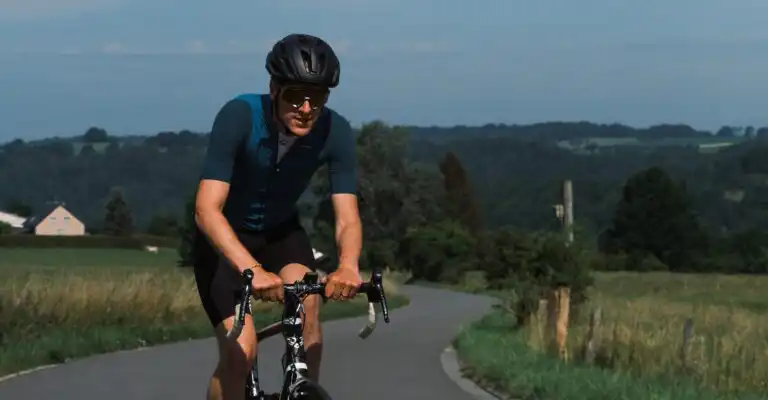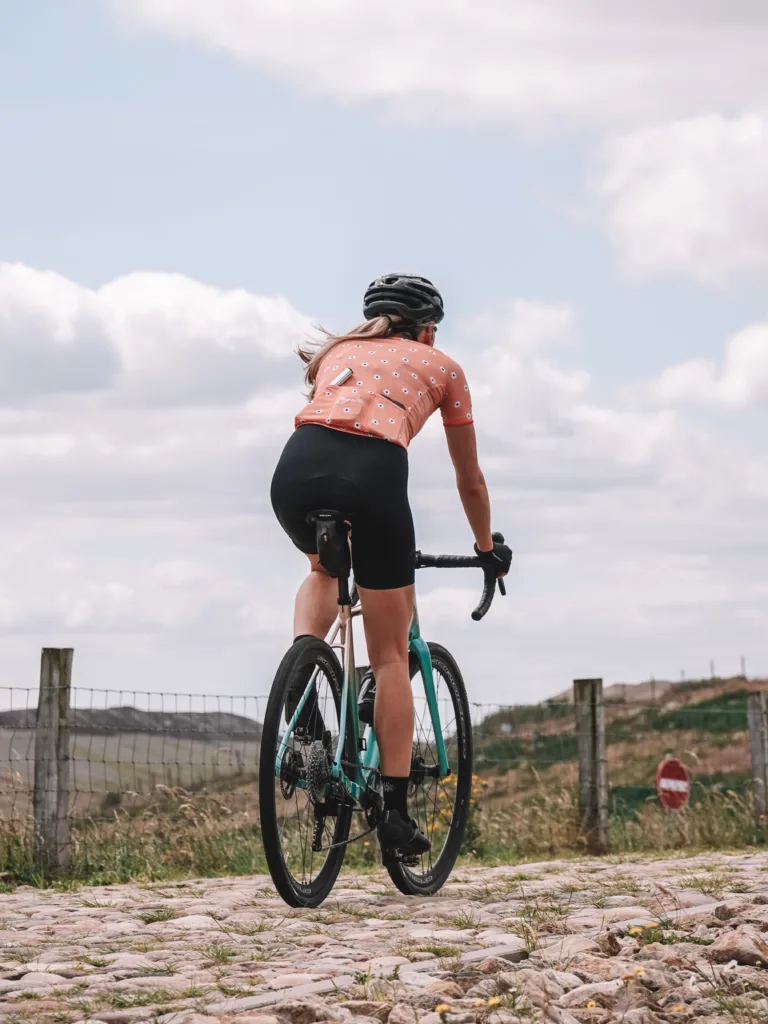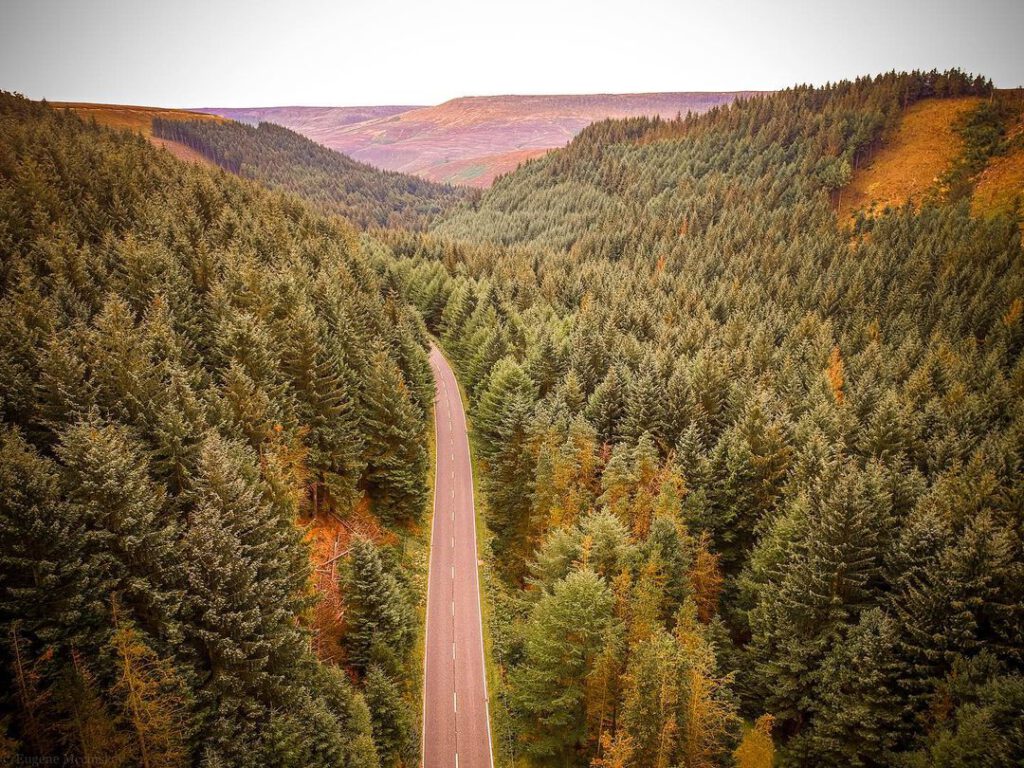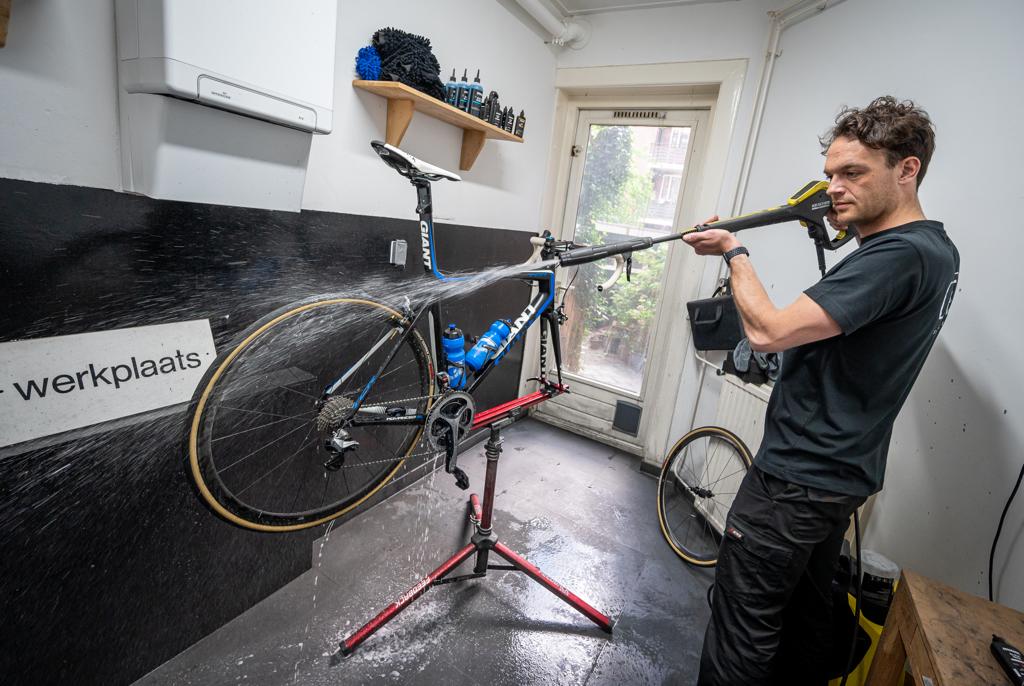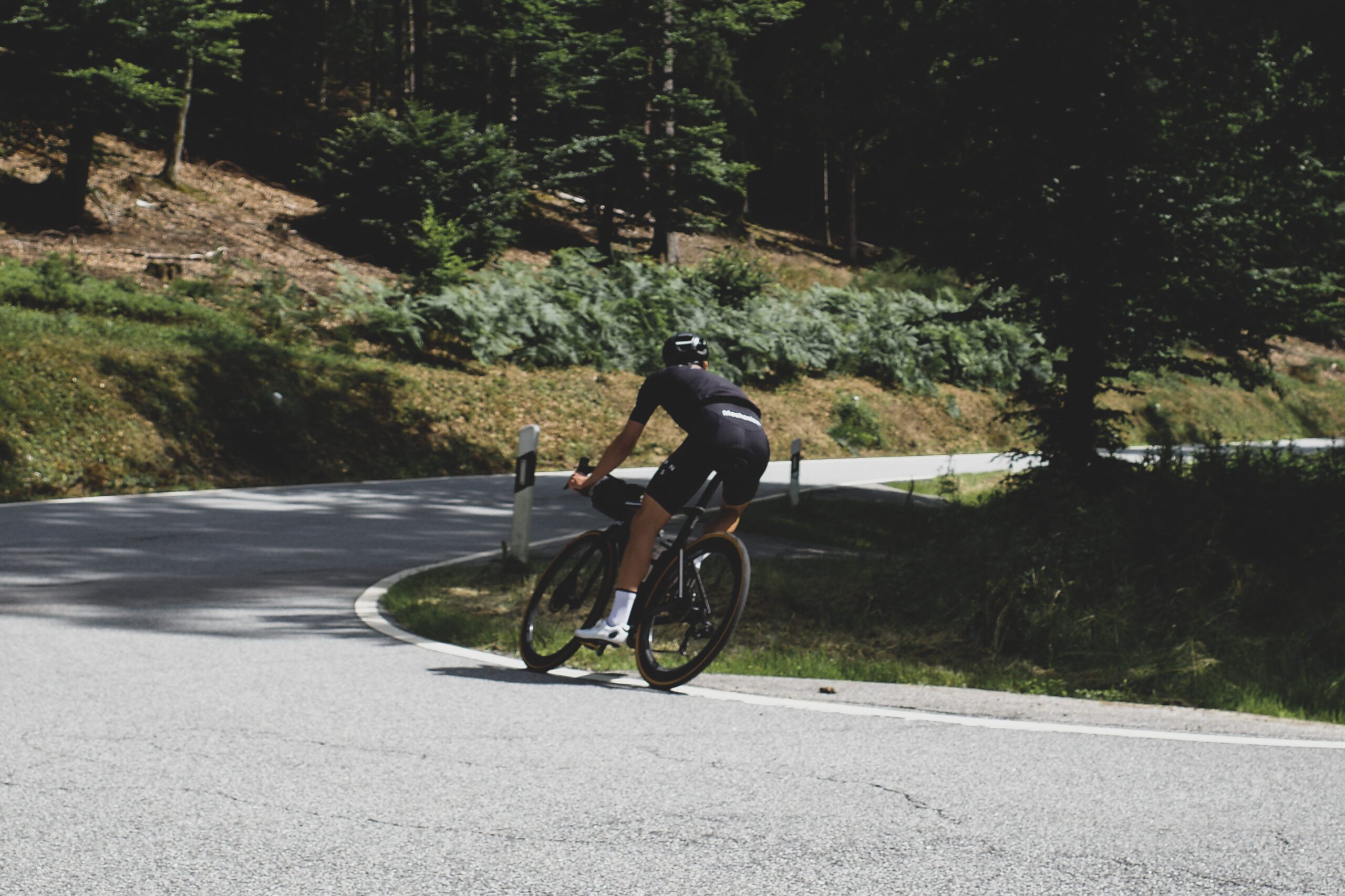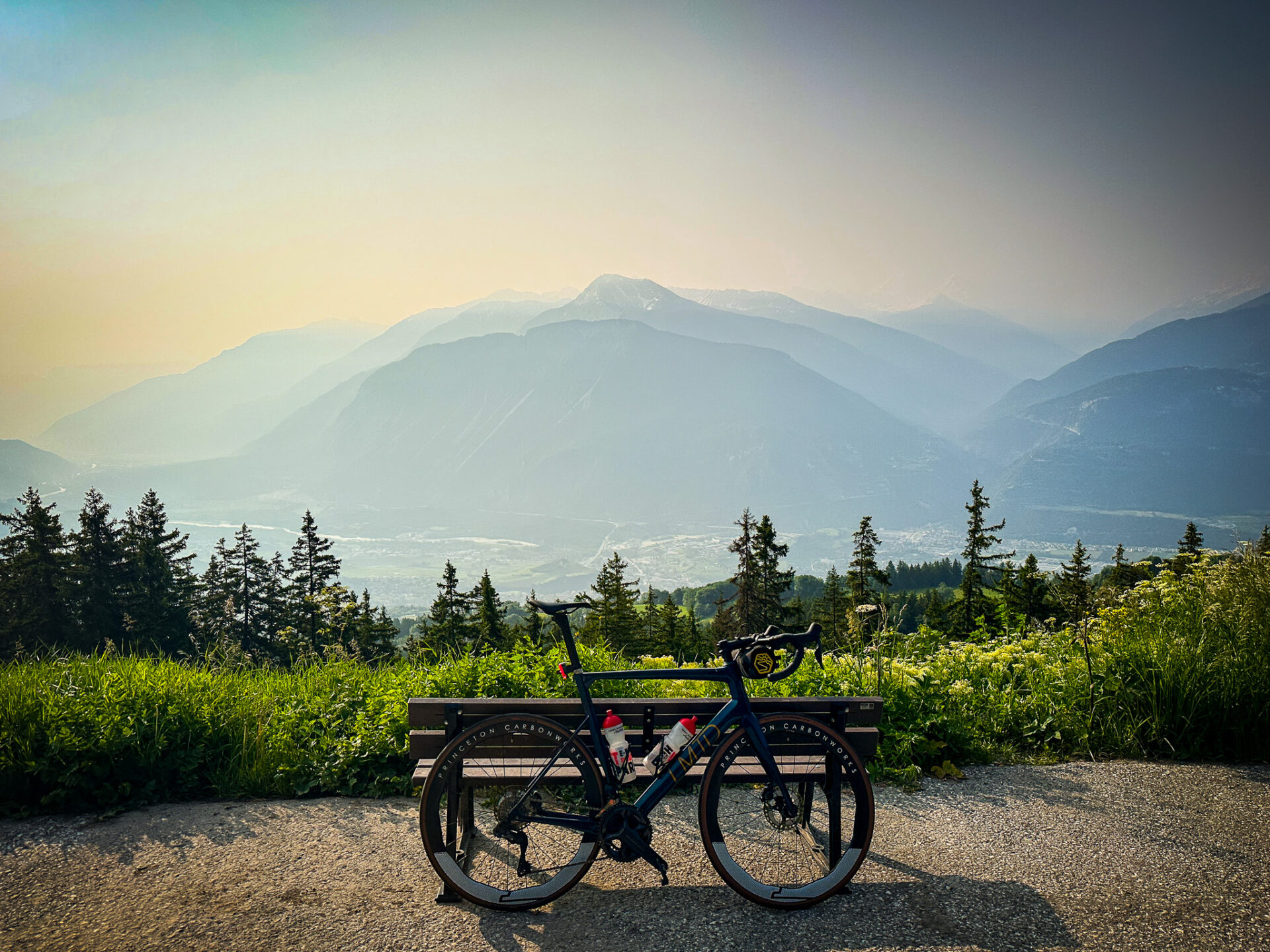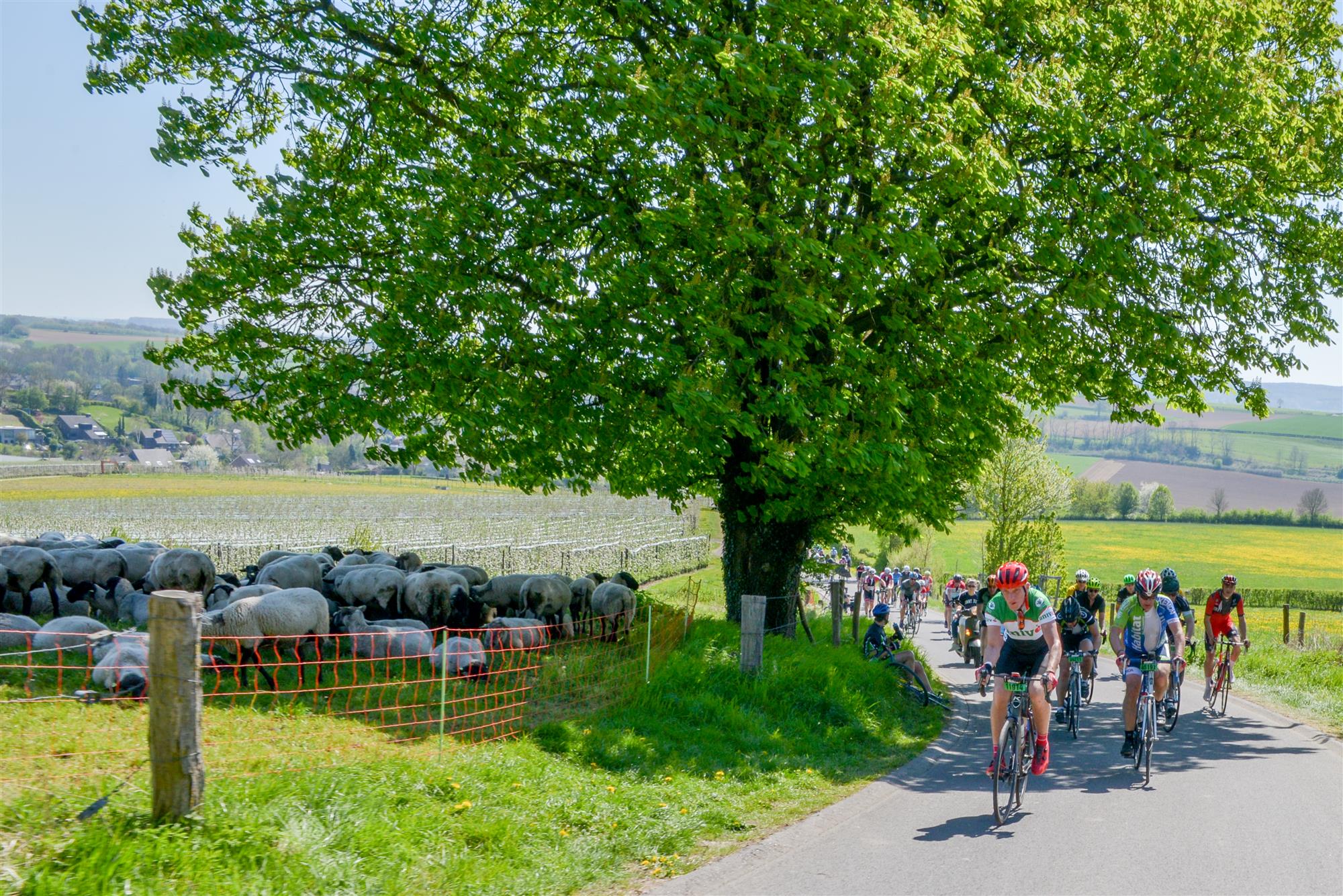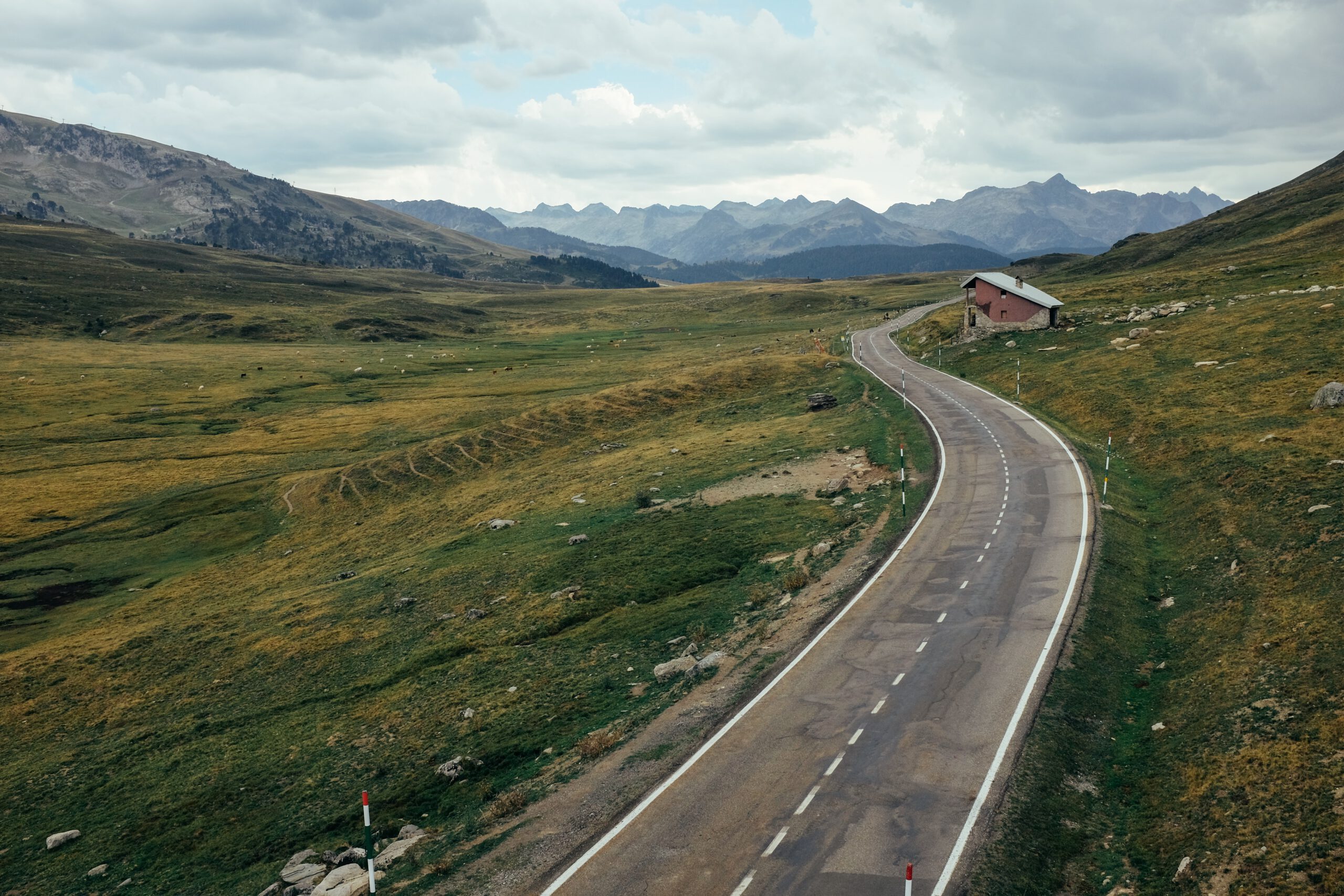4. Book a cycling package for ultimate convenience
Look for cycling packages where your luggage is transported daily to the next accommodation. This makes you see more of a country, you don't have to worry about transport and often includes a guide (see tip 7). Always top. One of the best known in the alpine region is Eurobike Luggage Transfer
5. Check local markets and holidays for a unique experience
In the city Bolzano you have the Törggelen in October, a special period. The wine festivals just before the wine harvest in France, Germany, Italy and Switzerland are also delicious. Or how about a cheese market in the Jura. Local activities like these can give your cycling holiday that little bit extra. It is also a nice change between cycling and enjoying the good life.
6. Explore border areas for a diverse travel experience
Border posts in Belgium, three-country points, old bunkers or other military positions. Border regions and their stories, there are lots of them. Want to cycle at a three-country point once? Luxembourg is perhaps the best tip, but you can also discover a lot of beauty on the border near Switzerland/Germany/France or in Italy/Switzerland/France. Also consider Friuli Venezia Giulia, where you can go both to Austria, Slovenia and Italy again with a scenic route. You have the advantage of three different cultures and landscapes, without having to travel long distances between regions.
7. Take a local guide for a day
I can definitely recommend this tip. We've driven with guides in Switzerland before, but also in Italy or in Spain. You just take a left when you think you should go right. The result is a top-notch experience. Guides vary in type and price. Count on spending a few hundred euros for a day. So with a group, this is a smarter thing to do. Extra tip: In popular cycling regions such as the Alps, Dolomites or Pyrenees, local guides often know the most beautiful car-free and off-road climbs. Ideal for an MTB adventure
8. Opt for a self-sufficient cycling holiday with bikepacking
Go for bikepacking, then you have ultimate freedom! You can drive from place to place, book in advance or find accommodation on spec. This gives you the freedom to adjust your route based on the weather or the atmosphere on the spot. Especially in the mountains, the latter is very nice.
What is also nice: a route like La Pedalata Or an event like Nature is Bike are nice introductions to this phenomenon.
9. Explore regions with good cuisine and ditto routes
Consider the wine routes in Alsace or the cider routes in Normandy. After a day of cycling, you can visit local wine or cider farms for a tasting. You also have these kinds of delicious routes in Austria, Switzerland, Italy, Germany and even the Netherlands. Not to mention Burgundy.
10. Keep in mind European siesta times
Between 12 and 3 in southern countries, shops and restaurants still often close, especially in summer. You think you can still score something somewhere? Sorry! Make sure you plan your lunch early or take something yourself for the road. That way, you avoid running out of food after a tough climb. Although you can always find a gas station for a quick (unhealthy) snack
11. Don't forget your travel insurance
This one is always good to check. Not only your travel insurance, but also the insurance of your belongings is important. The stories of damaged bikes with transport, stolen bikes, or other kinds of inconvenience that are not insured will keep you awake for weeks. It's a small effort, but can save a lot of hassle should something go wrong.
12. Look at the elevation profiles of your routes
Have you found your ideal hotel or apartment? Then open a route planner and plan a coffee round at your location. (+/- 30km) On my trip in the Auvergne I found out that there is/was not a metre of flatness around my campsite. Case in point, especially if you are not used to climbing, or if you are working towards better fitness.
13. Join an event
An event can be a great way to explore a region without thinking too much. If you opt for a cyclo, do keep in mind that there are a lot of other cyclists. This is sociable, but also makes you a bit more alert on the streets. Make sure you do register in time. Especially the big events like the Maratona and Marmotte sell out quickly.
14. Inquire about local cycling culture and rules
In the Netherlands, we are used to cyclists being king, but this is not true everywhere in Europe. In France, wearing a helmet is compulsory outside built-up areas for children under 12, and in Italy rear lights are mandatory. Also check our article with 'crazy cycling rules' that you would like to remember!
15. Take time for a good bike check-up
You won't be the first to go on holiday with worn brake pads. Or with an almost-worn rear tyre. Or a bike that rattles. It's all possible, but you can prevent it. Schedule this appointment with your bike shop, or do your maintenance yourself. If you schedule it, do it well in advance (allow for a week's slack). If a part has to be replaced unexpectedly, it can sometimes take a few working days (due to availability). If you go on holiday on a Friday, take your bike out the weekend before.
Hopefully, you will now start looking for your next cycling holiday with fresh eyes and a happy mind. We are happy to give you more tips.
